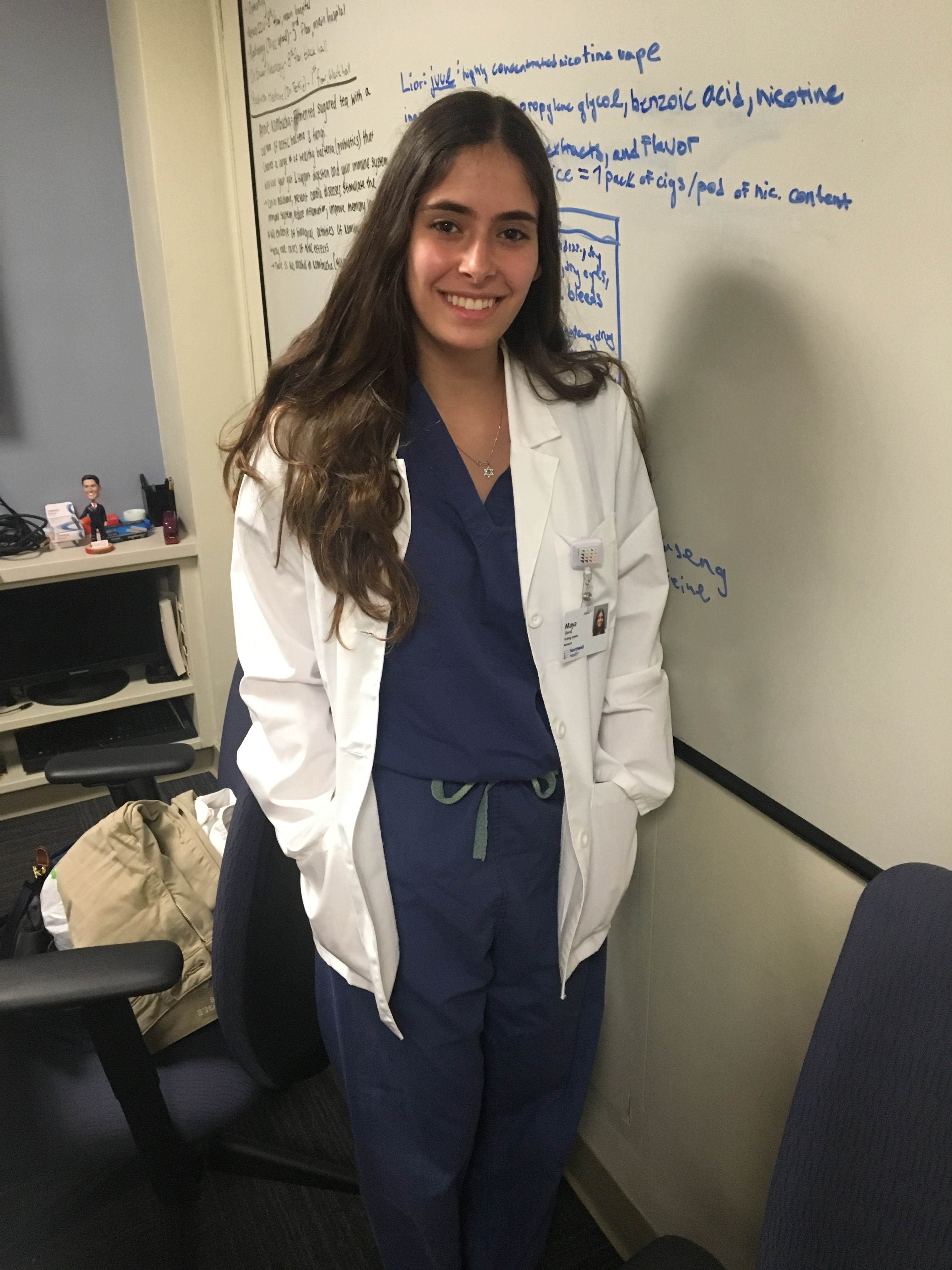My internship is with a neurosurgeon (my mentor) through the Feinstein Institute for Medical Research. However, because my mentor works at Lenox Hill Hospital, that happens to be the location I go to 4 days of the week. My responsibilities include assisting with patients and their charts, researching new topics my mentor asks me to on a daily basis, observing him in surgery and with patients, and working on my own clinical research poster by using his clinical trials.
To obtain this internship, over winter break I googled “medical research internships,” and this one came up. Although I applied to many, this one was my favorite. Every applicant must rank three research faculty they would want to work with. Then, those three mentors read over my application and decide if they want me as an intern. Luckily, my top choice chose me. He is a world-renowned neurosurgeon who specializes in glioblastoma research (a type of brain tumor).
There are three other interns with me. In a way, we are like neurosurgery residents. Our mentor quizzes us at random points throughout the day, especially during surgery. He often asks us what a certain part of the brain is, what it does, or what specific technique he is performing. This teaching method is making me learn how to think on my feet under pressure.
Every day has a new surprise in store. On Mondays and Fridays, we do rotations with our mentor and meet patients with him. He also gives us each a topic to research and learn more about. At the end of the day there is a quick discussion in which we all present our new information to him. On Tuesdays and Thursdays, we are in the OR with him. So far, I have observed three craniotomies, a hypoglossal schwannoma removal, and a shunt procedure. On Wednesdays, we do bench research and prepare for our poster presentation in two months. We must use our mentor’s clinical trials to come up with our own specific topic of interest.
The most surreal feeling I have had so far was this past Thursday in the OR. There were about ten people in the room; all were men except for me. This is one of the main reasons that I took this internship. Female neurosurgeons are rare and women are often underrepresented in the hardest medical specialties. Luckily, one of the other interns is also female and my mentor always acknowledges the lack of women in his field due to sexism and stereotyping. I feel empowered working in such a male-dominated profession without feeling out of place. This is the type of experience that will motivate me in the future when I strive to become a neurosurgeon.

